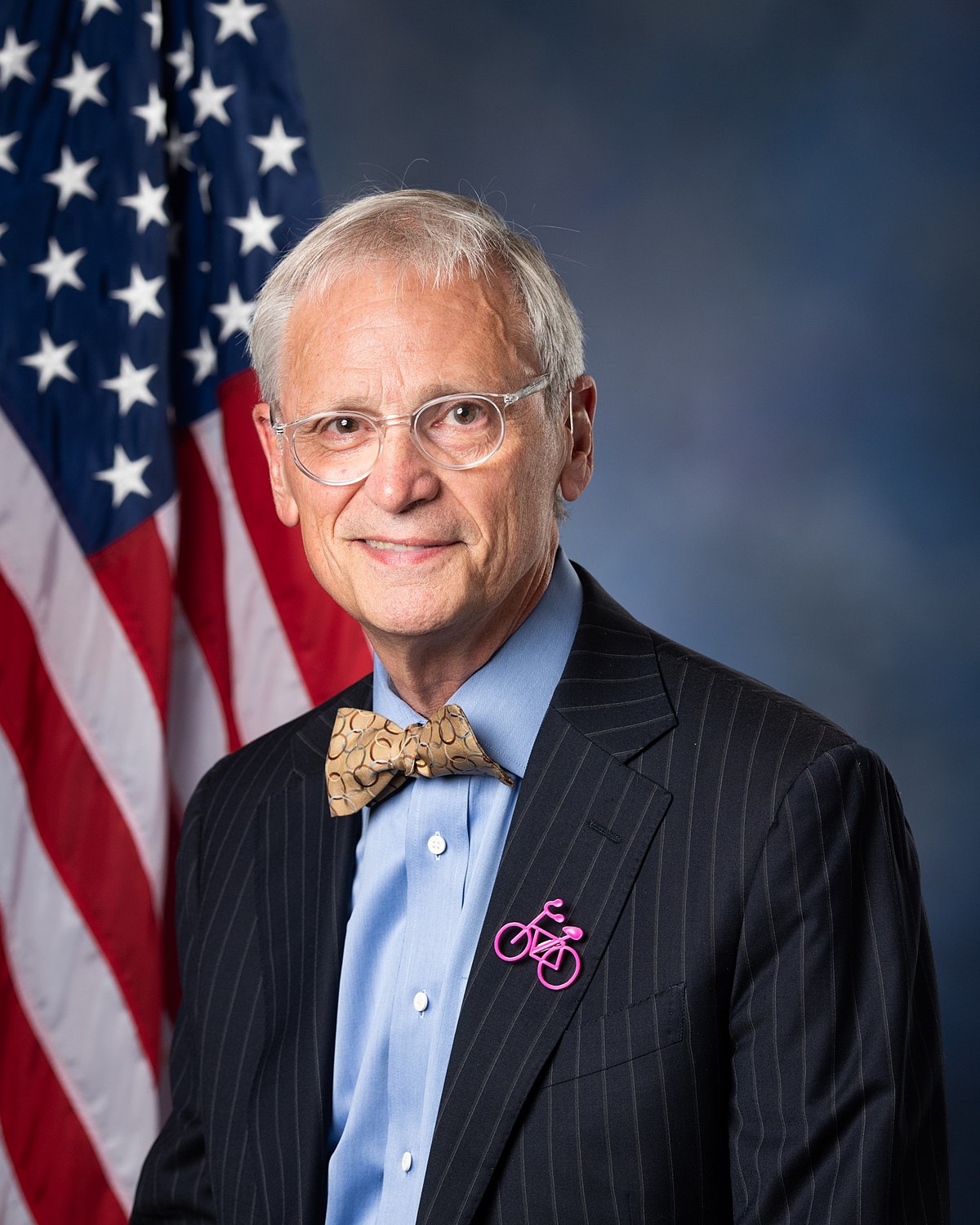By Tyler Durden
July 22, 2021
-ZeroHedge
Authored by Jeff Reynolds via PJMedia.com,
Rep. Earl Blumenauer (D-OR) hates billionaires spending their money. But he really, REALLY hates billionaires spending their money to go to space. Long a liberal backbencher jealous of the attention earned by upstarts in “the squad,” Blumenauer made a big announcement after Jeff Bezos and Richard Branson went to space this month. He hates the idea so much that he wants to tax it.
Blumenauer, who almost always sports a green bicycle lapel pin while on the floor, routinely runs unopposed for reelection in deep blue Portland. His effectiveness isn’t nearly as important for his constituency as the grandstanding he does. So when he appears to stand up to the 1%, he garners over 70% of the vote in his district.
In that context, here is his announcement:
It’s time for a SPACE Tax 🚀
For the second time in two weeks, a billionaire blasted into space yesterday in hopes of winning the space tourism race.
Let’s be clear. The purpose of these short trips to space isn’t scientific research. They’re for bragging rights and to give the uber-wealthy a new way to use their fortunes.
As a senior member of the Congressional committee that deals with taxation, I want to ensure that some of the money spent on these space flights goes back to the taxpayers who invested hundreds of billions in space research in the first place.
Just as you and I pay taxes when we buy airline tickets, billionaires who can afford to fly into space to produce nothing of scientific value should do the same, and then some.
That’s why I announced the Securing Protections Against Carbon Emissions Tax Act — or the SPACE Tax Act, as we’re calling it.
Space exploration shouldn’t be a tax-free holiday for the rich.
This policy proposal would put a per-passenger tax on each commercial flight to space, along with a separate excise tax for each launch into space. We’re looking at ways to use these funds to support further space research, combat the climate impacts of space travel, and invest in additional public space infrastructure.
It’s part of a long-overdue conversation about how space tourism will impact life here on our own planet.
Courage,
Earl
Posted on July 21, 2021.
As always, if a liberal hears about someone having fun, his first instinct is to tax it or to outlaw it.
And, after all, maybe watching billionaires start space tourism businesses isn’t as bad as it sounds. Instapundit’s Glenn Reynolds wrote in a nationally syndicated column this week,
Many dismiss this as just a billionaire’s ego trip, the next step beyond superyachts and private jets. But there’s much more going on here than ego.
As I wrote in my recent book, “America’s New Destiny in Space,” we’re now in the third phase of human spaceflight. In the first “visionary” phase, people wrote, planned and dreamed, but only small rockets, a la Robert Goddard’s, got off the ground. In the second, “command economy” phase, governments got involved and built spaceships, space stations and moon rockets.
The command economy phase proved the visionaries right about what could be done, but it was very expensive. When the political reasons for going into space shrank, so did the budgets.
But now Bezos, along with fellow billionaires Elon Musk of SpaceX and Richard Branson of Virgin Galactic, and other companies like RocketLab and Sierra Nevada, are moving us into the third phase: the sustainable phase. That’s when spaceflight generates enough revenue to pay for itself.
This implies, correctly it seems, that liberal critics can’t get past the command economy phase. If they can’t control it, they’ll demonize it, denigrate it, regulate it, and tax it—much as they’ve done with the rest of our economy. Gone are the days, it seems, when industrialists and entrepreneurs could use a free market economy to create something brand new and corner the market as the first investors to take a risk.
That’s what would happen, at least, if the Earl Blumenauers of the world had their way.
Maybe more important than driving down the cost of space travel by using the free market, as Reynolds points out, is the return to an economy that doesn’t shackle the twin pillars of dreaming and risking. Or, as Reason wrote earlier this week,
There’s every reason to believe the democratization of space travel is upon us—Bezos, Branson, and Musk have already delivered on that promise in other sectors—unless the government manages to screw things up. Following the pattern of commercial air travel in the 20th century, a novelty for billionaires today may well be accessible to the ordinary rich and then the middle class soon enough.
It’s their money. Spending it on fun things that have the added benefit of advancing everyone’s chances of one day going to space shouldn’t cause jealousy, but rather admiration.
Don’t tell that to Earl Blumenauer though.




